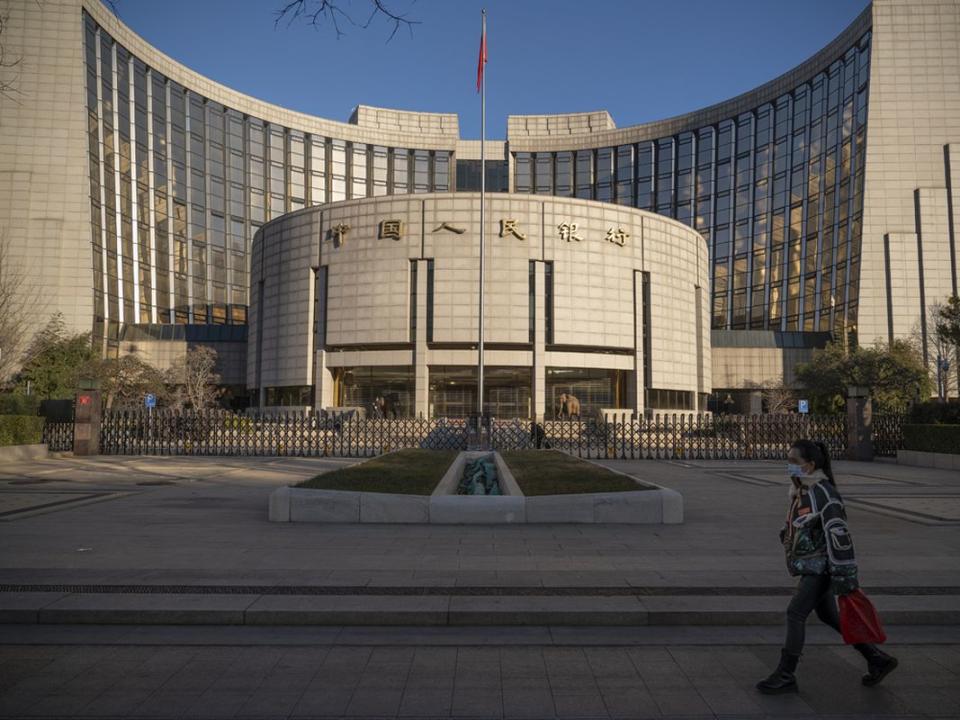Philip Cross: China’s slowdown exposes the flaws in its economy

The Bank of China unexpectedly slashed interest rates this week as economic growth in China continues to sputter, despite the lifting of its zero-COVID policy late last year, which had been expected to provide a much-needed boost. Exports in July were down 14.5 per cent from a year ago, with steep drops to all the major industrial nations only partly offset by gains in the small Russian market. Growth in China was also hampered by further declines in housing after a long boom, reflecting that “property bubbles rarely end well” as The Economist warned China in June (something Canadians are coming to understand).
The warning signals about China’s economic growth have been flashing red for some time. Its debt-to-GDP ratio doubled after the 2008 global financial crisis, reaching nearly 300 per cent according to BIS data, an unusually high level for an emerging market economy. Total factor productivity, the basic measure of an economy’s ability to innovate, has collapsed from annual growth of over three per cent in the early 2000s to below zero since 2014. Meanwhile, China’s share of global foreign direct investment flows has fallen from over 15 per cent in the early 2000s to just five per cent in 2021, as some U.S. companies repatriate supply lines while others avoid China’s increasingly inhospitable climate for technology investment.
The structural defects in China’s economic growth are important for the global economy, especially demand for natural resources, including those Ottawa still allows Canadian producers to export. The slowdown in recent years also has great symbolic importance, contradicting as it does China’s claim that its version of a state-managed economy is a better alternative for other emerging nations than the western world’s reliance on free markets.
China’s lagging growth is exposing the structural flaws in its economy. Its current slowdown is the inevitable aftermath of high rates of investment fuelled by debt. Its attempt to export its proficiency in physical infrastructure to developing nations through the Belt and Road Initiative is running into the diminishing returns typical of infrastructure investment. China’s growth spurt starting in the 1980s is proving no more sustainable than the Soviet Union’s through the 1970s and Japan’s until the 1990s — surges that were also hailed as a new economic template. They weren’t. In their 2012 book, Why Nations Fail, Daron Acemoglu and James Robinson document how growth in these nations fizzled out after years of reaping the low-hanging fruit of shifting resources from agriculture to industry, copying (or stealing) technology from more advanced nations and financing investment with onerous amounts of debt. Even several decades of rapid economic growth are no assurance the western world’s centuries-long economic miracle has been duplicated, let alone surpassed.
In her 2018 book Edge of Chaos, Dambisa Moyo called China’s model “authoritarian state capitalism.” That was always a contradiction in terms. A state-directed society abridges the freedom that drives innovation and economic growth, especially in technology. China’s restriction of the internet — the so-called Great Firewall of China — limits the free circulation of ideas that, according to Ian Bremmer in his 2012 book, Every Nation for Itself, is needed for “innovation, entrepreneurship, and independent thinking.” As a result, leading researchers are quick to leave China, while of the 100 most cited patents since 2003, none is from China. Niall Ferguson’s conclusion in his 2021 book Doom was even more scathing: “A surveillance state with a censored Internet, together with a social credit system that promotes conformity and obedience, seems unlikely to foster creativity.”
In retrospect, former prime minister Stephen Harper was correct in his 2018 book Right Here, Right Now that admitting China to the World Trade Organization in 2003 was a “bad deal.” China has repeatedly flouted the WTO rules by engaging in widespread theft of intellectual property, erecting illegal tariff and trade barriers and manipulating its currency. Dambisa Moyo emphasizes the growing importance of property rights and the rule of law as incomes increase and concludes that China has “significant structural inefficiencies of a kind that are baked into any system that dislocates markets.”
The Trudeau government’s move to establish closer economic ties with China was doomed from the start. By joining the Asian Development Bank, a Chinese-led alternative to the World Bank, Canada thumbed its nose at the U.S. and Britain in hopes — forlorn, as it turned out — of achieving greater access to the Chinese market. Justin Trudeau approached China about negotiating a free trade deal, despite all the evidence that the concept of free trade is meaningless to China’s leaders, but his overture was rejected. He thus failed Irving Kristol’s test that a statesman “should, above all, have the ability to distinguish friends from enemies.”
China was never our friend, and now that its failings in sustaining economic growth are becoming increasingly evident, we should be wary of closer ties.
Philip Cross is a senior fellow at the Macdonald-Laurier Institute

 Yahoo Finance
Yahoo Finance 